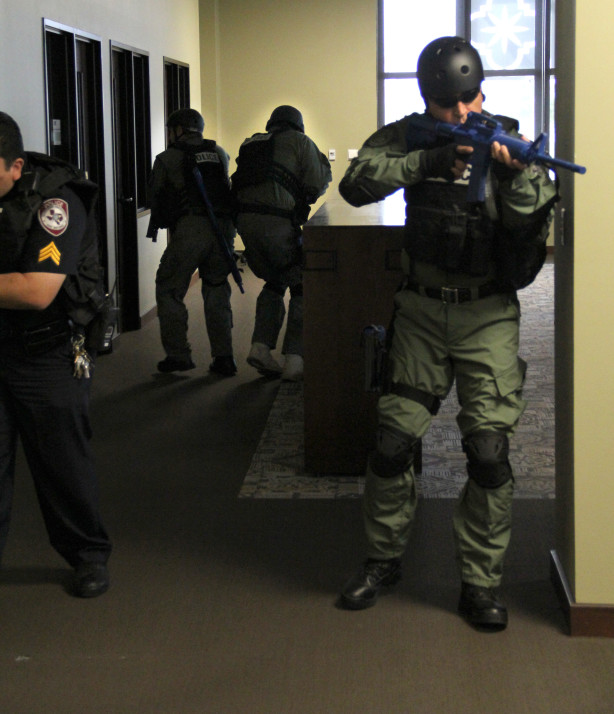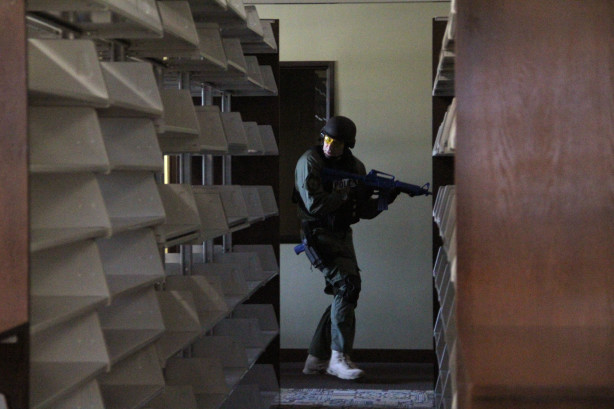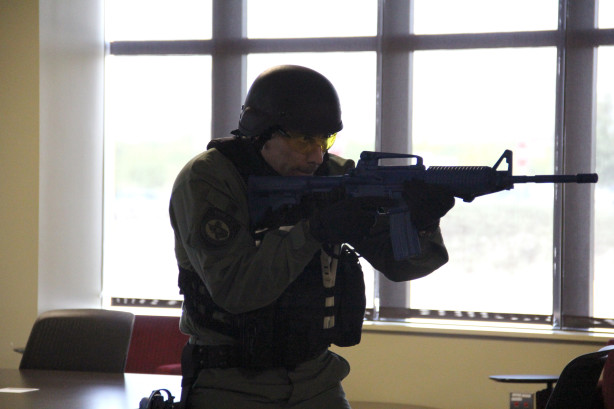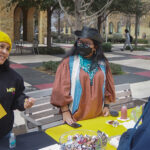
By Emily Rodriguez
To University Police Department Sgt. Alfred Cooke, there are three types of people: sheepdogs, lambs and wolves.
From his perspective, police officers play the role of sheepdogs, charged with protecting their lambs from their wolf predators.
The sheepdogs understand, love and protect the lambs, Cooke said.
In addition to protecting their community, university police say they are also tasked with understanding predator strategy and behavior.
“The sheepdog needs to know and understand the wolves in order to protect the lambs and attack the wolves with everything to protect their lambs,” he continued.

Cooke’s analogy embodies the mindset of UPD officers; to protect those who cannot protect themselves using vigilance and understanding of both civilians and criminals.
“As we grow, this campus will be more attractive to wolves,” Cooke said.
His advice? “Be aware, don’t be complacent.”
If those wolves ever stalk campus, UPD has a number of approaches in place. The Special Response Team, designed to ward off threats, actively trains on campus grounds.
The Special Response Team responds to an active shooter, hostage situations or when called upon by other law enforcement agencies, Cooke said.
Last month, the Special Response Team, clad in their “turtle suits,” or green tactical jumpsuits, swiftly made their way down a hallway, blue training guns in hand and infiltrated the university’s former library to practice clearing rooms. The guns are replicas of the weapons they will use in live situations.
On that day, the team stood back-to-back as they checked each room for civilians or the alleged suspect, to practice for real-life situations. Chief Ronald Davidson listened to the responses of his officers and continuously formulated a plan.

They searched for injured victims and triaged them based on degree of injury. Each Special Response Team officer carries a detachable first-aid kit that can be used to help others if the officer does not need it for their injuries, Davidson said.
UPD’s primary jurisdiction is property owned or leased by the university, such as the Brooks City-Base and Gillette campuses and its perimeter, but they can be called to assist other law enforcement agencies if requested.
The tactics UPD adopted are the same as those learned at police academies, and officers have undergone active shooter training through the Advanced Law Enforcement Rapid Response Training.
To join the Special Response Team, officers must be SWAT Team certified and meet marksman and physical requirements.
“We consider it essential that we stay on top of our game, that we have the latest training, that we keep ourselves abreast of technology, response tactics and techniques,” Cooke said.
In situations that call for the Special Response Team, it does take time for the officers to determine if a person is a “friendly” or an “aggressor.”
“People will be treated as an aggressor until they are proven friendly,” patrol officer Jeff Grossman said, and encourages all those present to cooperate with directions given.
Those who find themselves in the middle of an active shooter situation are encouraged to follow the Run, Hide, Fight plan, created to help civilians physically and mentally prepare themselves.
Corporal Gerardo Duran advises those caught in the situation to either run away, fight or incapacitate the aggressor if possible, to prevent them from attacking and to silence their cell phones.
“We don’t believe in sleeping under a turtle shell and staying isolated. Community policing is more than just another program, community policing is actually going out and knowing your community,” Cooke said.





